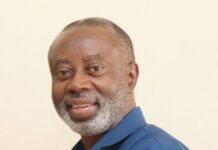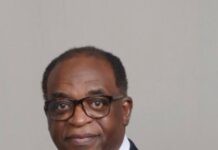
Sometimes, fate is funny: it can bring strange bedfellows. One such is playing out in Nigeria and connects the Maverick Elon Musk, Nigeria and Twitter. While Elon Musk is getting hold on Twitter in the USA, he is set to stake a control of the telecommunication market in Nigeria. By this, it would mean that Musk will control both the channel and the content in the Nigerian social media cyber space, (and) through this, Twitter that had to hide its tail a few months ago in Nigeria will now have effective control of the telecommunication sector, the type of control that no government can easily tell it to stop operating in the country!
The story starts with Tesla, the American car manufacturers. Musk is the CEO of Tesla which manufactures cars, batteries, solar panels and brands itself as clean energy company in the USA. With a revenue base of $18.76 billion by the end of first quarter of this year and an employee’s base of 110,000, it is one of the big ones. Musk has a personal share of 17% in the company.
Musk through Tesla took a stake in Twitter of 9.2% share in the social media giant in March this year which made it one of the largest corporate stakeholder owner In Twitter. Not satisfied with this level of ownership and control, Musk in April staked a $54.20 billion in cash to buy Twitter. Although the deal has temporary pause, with demand by Musk to verify the percent of twitter used who are boots, a mechanism to force Twitter to lower its value for him, it is almost certain to will fall through and Must will become the new load at Twitter.
Here closer home Nigeria, Musk has also been spreading his business tentacles. Musk owns Starlink, a USA telecommunication company that provides a high-speed, low-latency broadband internet across the global. It reportedly has about 69,000 active Starlink users in the United States and other selected locations. Last year the representatives of the company led by Market Access Director for Africa, Ryan Goodnight along with SpaceX consultant, Levin Born met with Nigerian telecommunications regulator, Nigeria Communication Commission (NCC) and expressed the desire of Musk’s telecom company to enter the Nigerian market. NCC had just completed a major document the National Broadband Plan which says a targets of raising penetration of 90% by 2025 from a base of 37.8 in 2020. There was therefore a convergence of interest: while NCC is looking for ways to drive broadband internet penetration in the country, to achieve its self-set target, Starlink is looking for new markets for its services. Eventually an agreement was reached for Starkin to get operational license for the SpaceX subsidiary that was quickly incorporated in Nigeria. The company has two licenses: International Gateway license and Internet Service Provider (ISP) license, allowing the company to trade as Starlink Internet Services Nigeria Ltd. The international gateway license has a 10-year tenure while the ISP license is to last for five years. Both licenses take effect from May 2022 and may be renewed after the expiration.
In March, Musk in his twitter page @elonmusk disclosed the deal. This statement was further made on Friday, May 27 on the verified twitter handle of Musk where he celebrated the approval his company obtained in Nigerians and Mozambique. Although this news is not on the website of NCC, there is has been no statement to contradict it, meaning that a deal has been reached, if not already signed. Indeed, some news outlets has reported that NCC has confirmed the deal.
With this capacity, Starlink is set to provide a real competition to the mobile operators in the country as well as to IPNX, the pioneer gateway company in the country. Starlink’s low-latency allows it to carry voice for a carrier that is well suited for data. It will become the major competitor this in terms of data and voice as well as in routing international internet traffic to and out of the country. Let me put disclosure, as an advocate of community networks, I love the potentials that Starlink satellites promise to allow communities to set up their own telecommunication infrastructure where the market has failed.
Starlink is really set to stake a huge portion of the telecommunication market in the country and with Musk controlling the Twitter, it means that one man has extensive monopoly on the Nigerian cyber space. It also means that with Musk owning Twitter, the social media giant will no longer be a tolerated guest, by some roundabout way, it is a major control of the telecommunication sector in the country.
What is interesting about this marriage is the trouble that Twitter had in the country. Last year its operation in Nigeria was suspended for about six for allowing messages that were considered by the Federal Government to breach national security. While Twitter is known to allow hate speech and other harmful contents to be on its network, it has clear policies for dealing with them, may be not too sufficient and only selectively enforced. Now that is also about to change.
Musk is a profiteer and like most platform providers who have over the years deliberately engineered algorisms to favour and privilege news that generate conflicts, he is not different. His views on this are well known. On March 5, Susan Benesh, Professor and Founding Director of the Dangerous Speech Project, Berkman Klein Center for Internet and Society at Harvard University quoted Musk implying that this weak enforcement against harmful content was too much and should be jettisoned in the new Twitter that he will control. His words ““Is someone you don’t like allowed to say something you don’t like?”. Prof. Benesh informed us that this statement is consistent with the twitter postings of Musk. For example she revealed how he had been retweeting far-right critiques of two of Twitter’s executives. Vijaya Gadde, the company’s general counsel and chief of content moderation he charged her for being biased against conservatives. She was subjected to a torrent of hostile twitter posts by Musk’s over 95.3 million twitter followers who profiled her Indian origin, making most of the posts to fall into the category of hate speech or what Benesh prefers to call Dangerous Speech, placing Gadde in a danger of mob action in a country which is increasing becoming used to murder by social media maladjusted youths. He followed with a tweet in which the far-right conspiracy theorist Mike Cernovich accused Twitter’s deputy general counsel of facilitating fraud.
To justify his claims that Twitter users want total freedom of speech on the platform, he tweeted a poll to his followers in March that asked whether users believed Twitter was protecting free speech. He said the poll results, in which roughly 70% of 2 million respondents answered “no,” would be “very important”, Musk’s view about freedom of speech tells a lot of his politics. Musk politics can be seen in a tweet of March 12 where he opined that “I still think Trump should be restored to Twitter”. He followed almost immediately this by saying “Biden’s mistake is that he thinks he was elected to transform the country, but actually everyone just wanted less drama”.
Here is another thing to expect from a Musk’s twitter: “Twitter will always be free for casual users, but maybe a slight cost for commercial/government users” (tweet of May 4). First, he did not define who is a casual user and what is the distinction between a commercial and casual user. From all intent, Musk is set to charge users of twitter a usage fee.
Musk thinks all content must be allowed in Twitter as a commitment to freedom of Speech, Nigerian government thinks that there is a limit to freedom of speech and that certain content must not be allowed in the interest of National security. Most sensible people think that hate speech and other contents that inspire violence and condition people to condone or commit violence should not be allowed. How far this marriage will go, we will wait and see when Stsrtlink goes into full blast with its Nigerian operation while in the USA, while Musk re-engineers the algorithms at Twitter towards his new vision for a new Twitter that will adhere to freedom of speech 100%.
By then we would also have to understand the impact of his Nigerian operations on local telecommunication companies. We will also come to terms with the new power that Twitter will hold, with Starlink, its sister company, controlling our internet traffic. When Musk allows all content, including terrorist rants to flow, will Nigerian government say no? Will the government have the gut to tell Twitter to pack off as it did last year? These are questions that the new realities will unveil to us. There is a poisoned investment in the corner, we hope that this is not one of them.
Y. Z. Yaú, CITAD



